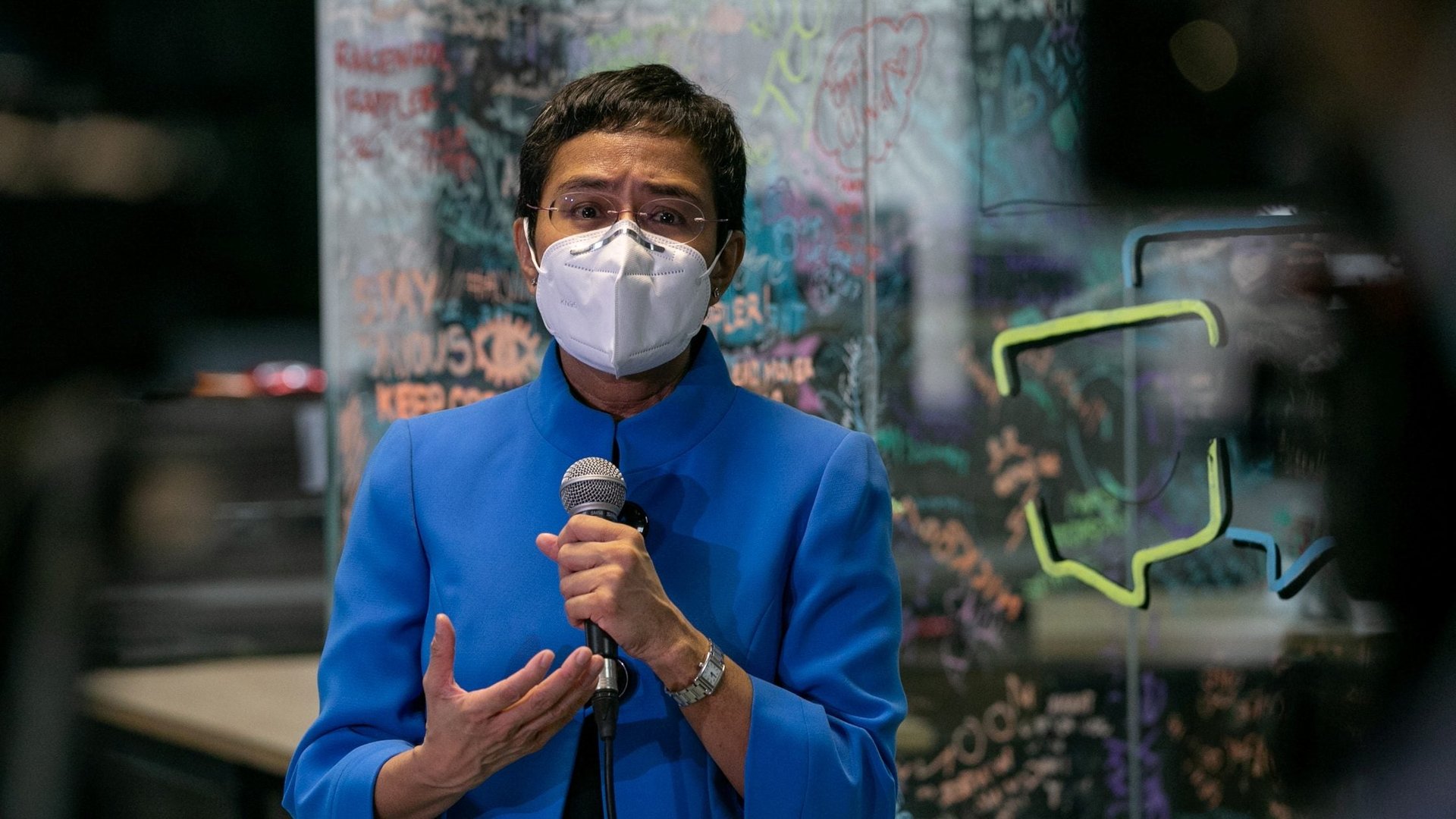Maria Ressa’s Nobel peace prize win is an indictment of Facebook
The Norwegian Nobel Committee marked press freedom on Friday (Oct. 8) by awarding the peace prize to journalists Maria Ressa of the Philippines and Dmitry Muratov of Russia. Both journalists are press freedom icons for their work in countries where journalism is often criminalized, and journalists face legal risks or personal danger.


The Norwegian Nobel Committee marked press freedom on Friday (Oct. 8) by awarding the peace prize to journalists Maria Ressa of the Philippines and Dmitry Muratov of Russia. Both journalists are press freedom icons for their work in countries where journalism is often criminalized, and journalists face legal risks or personal danger.
In Ressa’s case, the decision is also an indictment of Facebook, the world’s largest social media company, which plays a key role in her story.
Taking on Rodrigo Duterte
Ressa co-founded the news website Rappler in 2011 after years reporting for CNN in southeast Asia. When Rodrigo Duterte rose to power in the Philippines in 2016, in part fueled by his use of Facebook, Rappler reported both on the new president’s violent war on drugs and the government’s use of Facebook to spread dangerous misinformation.
The regime pushed fakes and narratives on Facebook to discredit political rivals, but when Ressa’s team started writing about this, Duterte took aim at her with online threats and legal action. In 2020, Ressa was convicted on a dubious charge of “cyber libel,” after a 2021 Rappler piece linked to a newspaper that had made allegations against a Duterte associate. Ressa faces a possible six years in jail, while she and Rappler also face fraud and anti-terrorism charges.
Maria Ressa and Facebook
Ressa wasn’t always on bad terms with Facebook. Rappler started as a Facebook page before it was a standalone website. In the Philippines, Facebook is free on mobile phones, part of the company’s Free Basics program that subsidizes internet access in some developing countries and effectively makes Facebook the default internet experience. Rappler was even an official partner of Facebook, an important status considering how crucial the platform is for online news in the Philippines.
But since her ordeal, Ressa has become an outspoken critic of Facebook, its policies toward political leaders like Duterte, and its role in the global south. “Facebook is now the world’s largest distributor of news and yet it has refused to be the gatekeeper,” she told The New York Times in 2019. “And when it does that, when you allow lies to actually get on the same playing field as facts, it taints the entire public sphere.”
In addition to Duterte’s so-called war on drugs, the United Nations found that Facebook was instrumental in Myanmar’s alleged genocide of Rohingya Muslims, a further indictment of the role the social media giant plays in developing countries with authoritarian regimes. In the US, it has been blamed for the rise of Donald Trump.
While Facebook eventually took down networks of fake accounts in the Philippines, apologized for its role in Myanmar, and banned Donald Trump from the platform, Ressa’s criticism has not ceased.
The Nobel win represents a victory for Ressa, for Rappler, and independent journalism in countries where that’s dangerous, but it is also a rebuke to Facebook, and the kind of politics and political violence it has enabled.